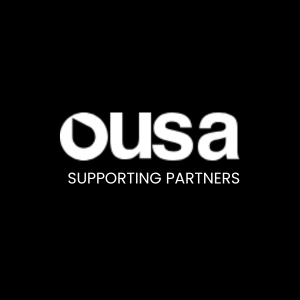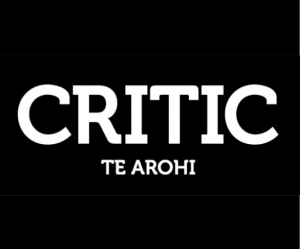Compliance | Legal Obligations
Leading your club as a committee member involves considering several important factors..
For some helpful information regarding the running of a community group, visit Community Toolkit here
Liability
Most o four clubs and societies are not legally incorporated entities, which means they can't own property, borrow money, or receive external funding. As a committee member, you and other members may be personally responsible for any obligations and court judgments against the club. It's crucial to understand this before committing your club to anything.
Tax
Regardless of your club's legal status, you may be subject to tax through IRD, on your club's income. The amount you pay depends on factors like your legal status (incorporated/non-incorporated, charity etc.), money turnover, and type of income you recieve. Many clubs can often qualify for a $1000 tax exemption because of their non-for-profit (NFP) status. NFP refers to the face that no individual member or members of the club benefit financially from its operations. However, you need to provide the necessary paperwork to prove your non-profit status.
Annual Clubs and Societies tax returns (i.e. the forms) are due July 7th each year, with any payments due by the following February.
There's plenty of information online, including the Club and Societies Tax Return Guide. However, the information and jargon can be overwhelming. For help, reach out to Dunedin Community Accounting, who offer free accounting advice for NFPs.
GST
Goods and Services Tax (GST) is separate from tax. If your club's turnover exceeds $60,000, you should be conscious of GST requirements. It comes with additional compliance and paperwork, but it may also have benefits for writing off particular costs.
Privacy Act 2020
Privacy refers to personal information that can identify individuals. It can also include opinions about the individual, whether the information is true or not. When collecting personal information, you must have a lawful purpose, avoid unnecessary or intrusive collection, disclose how the information is used and stored, seek permission to collect it, and ensure reasonable safeguards. Personal information should be safely discarded when no longer needed, and disclosure should only occur in limited circumstances approved by the law
Your core obligations are as follows:
- Only collect personal information for a designated (and lawful) purpose. If you've said you're going to use their information for x, y and z. Make sure it's for x,y and z not a and b. They've not consented for a and b.
- Eliminate unnecessary information collection, or unfair or unreasonably intrusive information collection
- Disclose what is being collected, why it's being collected, how it's being stored, who has access to it, if the collection is compulsory (or optional) and how they can go about viewing, editing, or deleting their private information where relevant
- Collect information directly from the person at hand
- Seek permission to collect information
- Have reasonable safeguards in place to prevent loss, misuse or disclosure of personal information
- Safely discard information when it is no longer necessary
- Only disclose personal information in limited (legally approved) circumstances
Health and Safety Work Act 2015 (HSWA)
The HSWA identifies clubs, societies, and other non-for-profit volunteer organisations as PCBU’s if you have one or more employees. If you have no employees, you will not be considered a PCBU. For the majority of our clubs, you are then not recognized as a PCBU and therefore have no legal obligations under the HSWA.
While some clubs may not have legal obligations under the Health and Safety at Work Act, they have moral obligations to their members and affiliated organizations. OUSA expect the committee members of our affiliated clubs and societies to:
- Identify, assess and control hazards
- Involve and inform your members of the above processes
- Monitor identified hazards
- Ensure members have the appropriate safety clothing and equipment
- Ensure club equipment is fit for purpose
Though the HSWA may not have a legal application, it does provide a framework for best practice systems and processes and has a lot of helpful information and resources that your club can take advantage of.
Your affiliation to OUSA may be jeopardized if there are reasonable grounds for concern over your club’s health and safety management systems.
Noise - Resource Management Act 1991
It's important to be mindful of noise levels and respect your surroundings. The city and other areas of NZ have pre-determined thresholds which is considered appropriate, and excessive noise may result in interventions or penalties from noise control officers. Adjust your noise levels and behavior accordingly.
Food Act 2014
If your club sells food, you must comply with the Food Act, which promotes food safety and is regulated by local councils. Even if there is no cost involved in providing food, it's still good practice to follow the act's framework. Consult with the Dunedin City Council to determine if your activities fall under the act's requirements.
Sale and Supply of Alcohol Act 2012
This act aims to ensure the safe and responsible sale, supply, and consumption of alcohol. It applies to all scenarios involving the exchange of money for alcohol, whether directly or indirectly. For example, a membership fee will get you X amount of goons over the year, or an event ticket of X price, will get you three tokens that can be exchanged for X number of drinks.
Where you have that exchange, you’ll either need to abolish it or seek out a Special Liquor License through the DCC. Obtaining a Special Liquor License can be challenging and requires compliance and paperwork. It's recommended to avoid selling or indirectly exchanging alcohol and instead use licensed premises.
Both individual members and the club have responsibilities regarding alcohol consumption. Individuals can of course purchase their own alcohol which raises the question of individual verse club responsibility.
Behaviours surrounding alcohol consumption become problematic when club activities and alcohol use are intertwined and it’s widely accepted as part of the club culture – with culture not having to be “documented” but rather collective understanding or expectations. You can help build responsible club culture by using the host responsibility framework of providing leadership and oversight, general hazard management, training, documenting and sharing information with your members, preventing intoxication, denying service to minors (or those intoxicated), responsibly promoting your activities (i.e. modelling good behaviours, building expectations around what is acceptable, contributing to positive club culture and intervening when you see behaviours that don't align with the club or OUSA's expectations).
Un-incorporated Clubs and Societies
Un-incorporated means you’re not an incorporated society, charitable trust, business or other legal entity (recognized by NZ law). Most of our clubs start off and remain unincorporated. Generally, this works just fine rarely impacting the day to day operations.
Rules and Processes
As a matter of good practice, an unincorporated group should record its rules and processes for managing the group's affairs and making decisions. These rules could be based on the group's past practice and should be agreed upon by all your members. Although there is no legal requirement* for writing down your rules, it will help your group operate smoothly and will also be useful if any disputes arise, especially if there are assets or money involved.
*Note OUSA has its own unique requirements for affiliation.
Key Advantages
- Fewer legal and administrative requirements
- More flexible structure, with fewer rules or restrictions
Key Limitations
- Members can be held personally liable
- No legal standing to enter into contracts, own property or borrow money
If your club holds a legal status such as an incorporated society or registered charity you will have additional legal obligations to meet. There are pros and cons for establishing yourself as a legal entity and these can be discussed with our CDO on a case by case basis.
Incorporated Societies
An incorporated society is set up under the Incorporated Societies Act 1908. Once incorporated, it means a society can legally run its affairs as though it were an individual person. The NZ Companies Office is responsible for administering the Societies and Trust Register that registers Incorporated Societies.
Rules and Processes
Incorporated Societies must have constitutions that include specific clauses under the Incorporated Societies Act 1908.
Key Advantages
- Members are not personally liable for debts and other obligations
- You may enter into contracts, own property or borrow money (noting the OUSA Affiliation Policy has its own requirements around this)
- You may be eligible for external funding
Key Limitations
- Additional legal and administrative requirements
- Your structure is less flexible, with more rules or restrictions
If your club is interested in being recognized as an incorporated society head to https://community.net.nz/resources/community-resource-kit/process-for-setting-up-an-incorporated-society/ for more information. To view the Incorporated Societies Act 2022, click here
Charitable Trust
If you would like to become recognized as a charitable trust, you’ll need to approach the Companies Office. Charitable Trusts must act exclusively or principally for charitable purposes which are the advancement of education or religion, the relief of poverty, sickness or disability or any other purpose that benefits the community.
Rules and Processes
Charitable trusts require a constitution however there is more flexibility in the individual clauses compared to incorporated societies.
Key Advantages
- Members are not personally liable for debts and other obligations
-
You may enter into contracts, own property or borrow money (noting the OUSA Affiliation Policy has its own specifications surrounding this)
- You may be eligible for external funding
Key Limitations
- Additional legal and administrative requirements
- Your structure is less flexible, with more rules or restrictions
If you are interested in becoming recognized as a charitable trust head to https://community.net.nz/resources/community-resource-kit/process-for-setting-up-a-registered-charitable-trust/ for more information.


